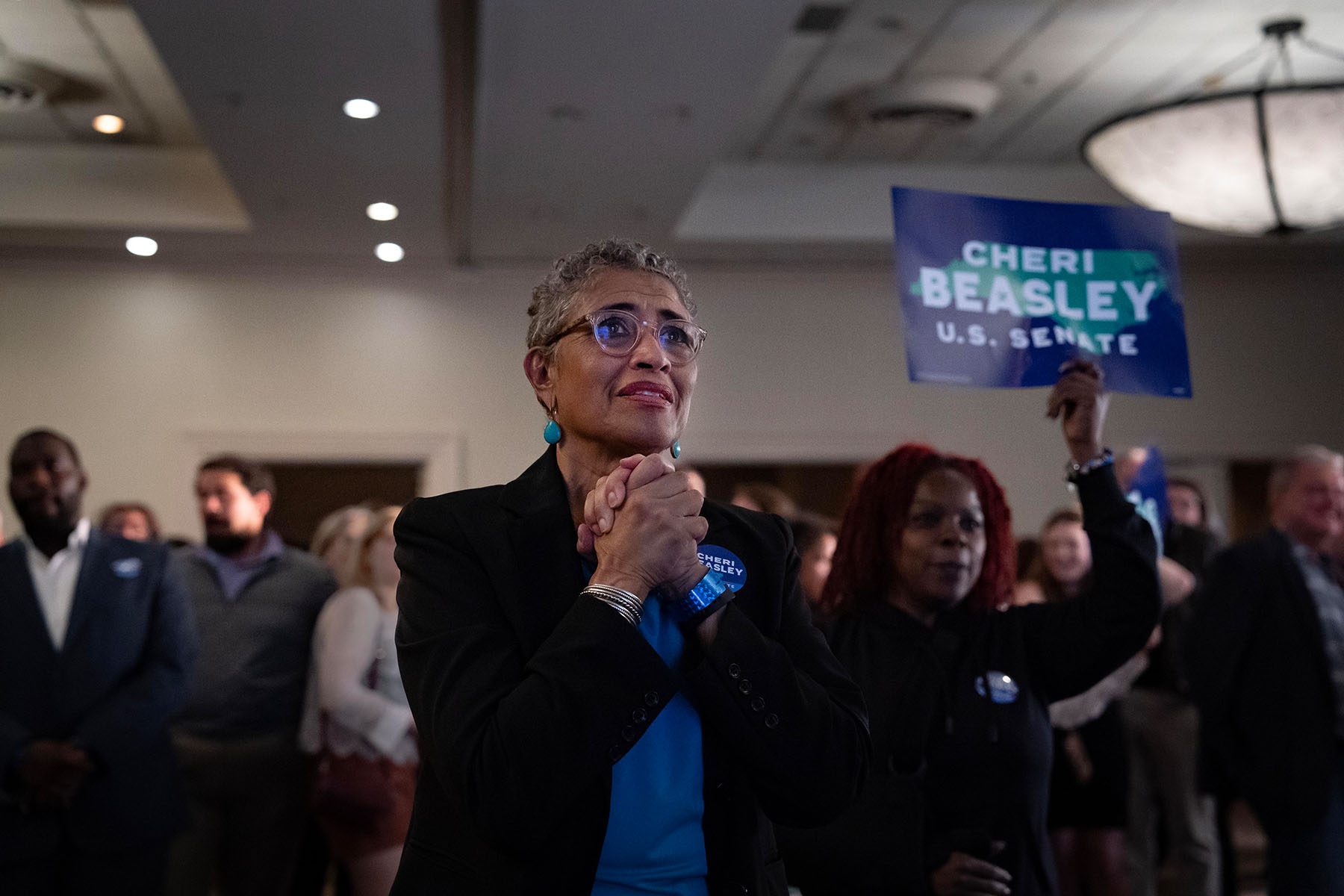We’re making sense of the midterms. Subscribe to our daily newsletter for election context and analysis.
The Senate has had no Black women since Kamala Harris became the country’s first woman vice president nearly two years ago. This year, two candidates had a chance of changing that: Cheri Beasley of North Carolina and Val Demings of Florida. Both Democrats, they emerged as competitive candidates in races that favored their Republican opponents, even surpassing them in fundraising.
But both fell short Tuesday, Decision Desk HQ projects, and the Senate will remain without a Black woman.
The president’s party typically loses seats in the midterms, and Demings and Beasley competed in Republican-leaning battleground states. Demings lost to Republican Sen. Marco Rubio, who was first elected in 2010, and Beasley to Rep. Ted Budd in the race for the seat being vacated by Republican Sen. Richard Burr.
“It’s very disturbing that we would continue to have zero Black women senators for this next term. It’s another indicator that we are failing to be a truly democratic society,” said Nadia Brown, professor of government and chair of the Women’s and Gender Studies program at Georgetown University. “We know that more diversity produces better outcomes, and so having people at the legislative table that have different lived experiences leads to better policy.”
Demings is a former chief for the Orlando Police Department who has served Florida’s 10th Congressional District in the U.S. House since 2017. Beasley spent two decades as a state judge and was the first Black woman to be chief justice of the North Carolina state Supreme Court.
Historically Black women candidates face a range of challenges in their efforts to win elections. This includes fighting racial stereotypes, and gaining the necessary funding and publicity to draw voters.
Despite these hurdles, Demings and Beasley’s campaigns reflect women committed to running a race on their own terms. Both women also significantly outraised their Republican competitors.
Demings amassed more than $72 million, 53 percent of which came from small individual donations less than $200. Beasley raised more than $33 million, including nearly $11 million in small donations as of October 19. A larger share of their donations came from out of state compared to their Republican opponents.

“Black women have no choice but to nationalize their races because their money has to come from out of state and in state,” said Stefanie Brown James, co-founder of the Collective PAC, which supports Black political candidates. “We don’t have these built-in wealth networks to just stay in state, and to just have what’s discussed in your state be the only thing you talk about. You have to connect it to a national narrative. That’s what these women have been able to do so well.”
Despite their election losses, optimism remains about their political futures.
“Don’t count these women out,” Brown said. “They are quality candidates, and we miss the larger message if we only look at November 8. I think the larger message is that they will have another political battle in front of them.”
Beyond Demings and Beasley, in the 2022 election season, Black women set records, with at least 134 running as major-party candidates for the U.S. House, at least 22 running for U.S. Senate and at least 12 running for governor, according to tallies by the Center for American Women and Politics.
“Our work beyond November 8 is doubling down on efforts to ensure that there is a generation and cohort of Black women running and winning and serving in the U.S. Senate,” said Glynda Carr, CEO and president of Higher Heights for America, a group that supports Black women political candidates. “We will continue our efforts to draw awareness to the gaping gap in the Senate and to call out that an important voice is a Black woman’s voice.”






